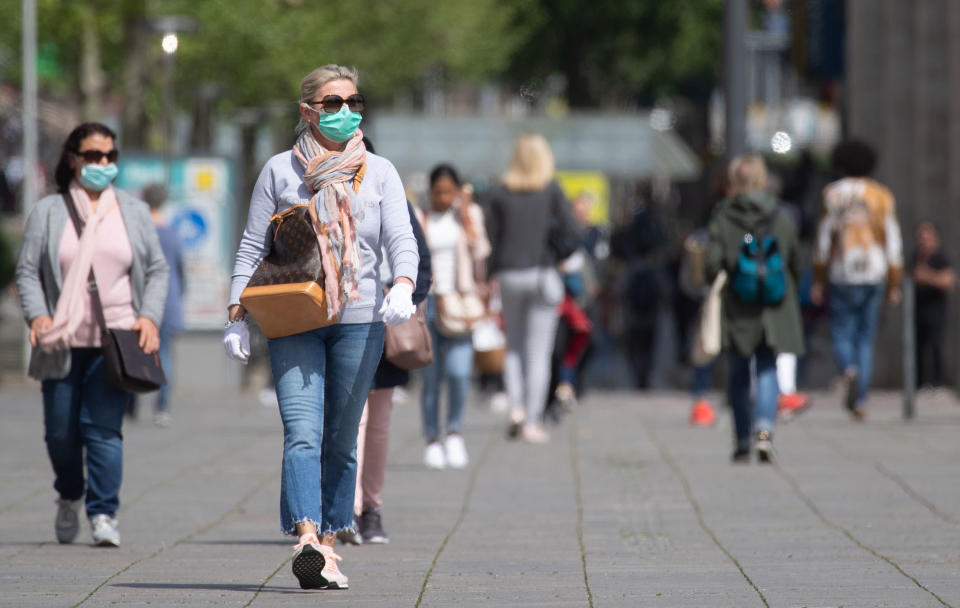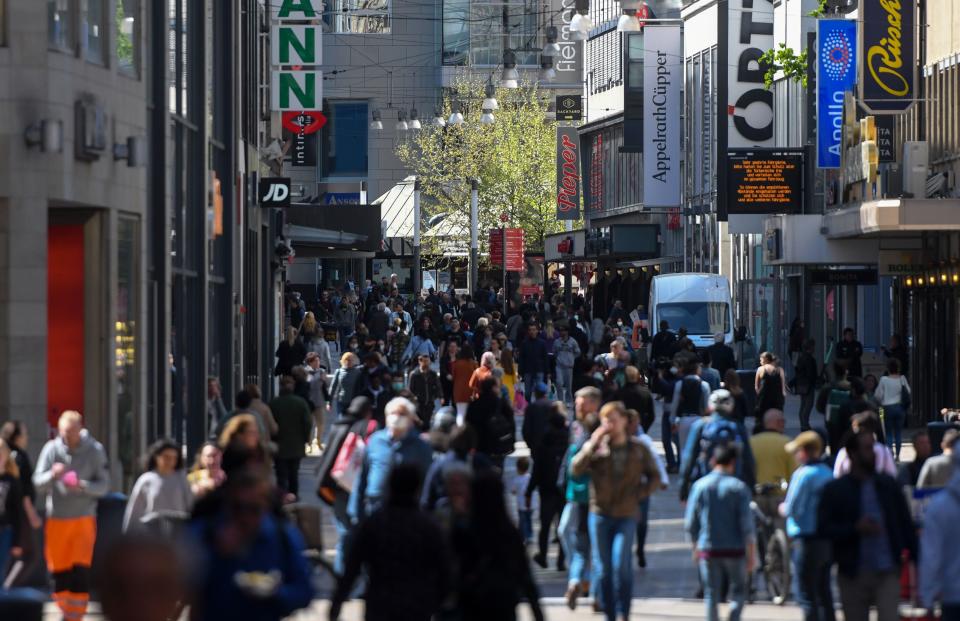Coronavirus: Warning after infection rate rises in Germany as lockdown measures eased
Health officials in Germany have warned the public not to be complacent after a rise in the country’s coronavirus infection rate.
Germany has been widely seen as a world leader in how to handle the spread of COVID-19, and this week eased lockdown measures.
However, its government agency responsible for disease control has warned there is no end in sight to the coronavirus pandemic and that the number of cases could increase again.
On Tuesday, the Robert Koch Institute (RKI) said Germany’s reproduction rate, or RO, had risen from 0.7 on Friday to 0.9, meaning someone with coronavirus is infecting roughly one other person.
There have been more than 147,000 cases of coronavirus in Germany, with more than 4,800 deaths, according to Johns Hopkins University.
In the UK, the government says more than 124,000 people have tested positive, and 16,509 people in hospitals have died.

Germany’s comparative success in dealing with the spread of COVID-19 has been attributed to its rigorous testing – an estimated 50,000 a day compared to the UK’s current daily tally of 19,316 – and a greater number of intensive care beds and ventilators.
However, RKI vice president Lars Schaade warned on Tuesday that “the virus is not gone”.
Latest coronavirus news, updates and advice
Live: Follow all the latest updates from the UK and around the world
Fact-checker: The number of COVID-19 cases in your local area
6 charts and maps that explain how COVID-19 is spreading
He said: "There is no end in sight to the epidemic. The number of cases may rise again.
"If we pretend we have overcome the problem, we will have another outbreak – that is certain."

He said the death rate in Germany had increased to 3.2%, although added this compared to 5.4% in the US, 10.4% in Spain and 13.2% in Italy.
Schaade said testing capacity in Germany was at 730,000 a week, but the goal is to reach one million.
He said that a second wave of infections could occur if lockdown measures are relaxed too swiftly, and that it will take several months before Germany can fully return to normal.

“The less we prevent the virus, the more likely it will fall back to its basic reproduction number, which is between two and three," he said.
The reproduction or infection rate is a key barometer for the German government when deciding how to ease its lockdown measures.
Following a four-week shutdown, small shops with a surface area of up to 800 square metres (8,600 square feet) have reopened in Germany this week, along with car showrooms, bike shops and bookshops of any size, while pupils have been able to return to school to sit exams.
Watch the video below
Chancellor Angela Merkel's chief of staff, Helge Braun, told n-tv television that big shops "draw large numbers of people into the city centre, they have high customer numbers and that isn't possible in the first step".
It remains unclear when bars and restaurants will reopen, but this year's Oktoberfest in Munich has been called off because of the pandemic.
The annual celebration of beer was supposed to run from 19 September to 4 October, and draws about six million visitors every year to packed festival grounds in Bavaria's capital.
State governor Markus Soeder said after meeting Munich's mayor on Tuesday: "We agreed that the risk is simply too high."
The approach of countries like Germany to easing their coronavirus restrictions is likely to have a bearing on the UK’s eventual strategy.
Citing the new German infection rate, Professor Anthony Costello, director of University College London's Institute for Global Health, tweeted that the UK must continue with testing, self-isolating and social distancing.
Under the UK government’s “stay at home” rules, people should only go outside for food, health reasons or work (but only if they cannot work from home). If they do go outside, they should stay two metres away from others.
Last week, the government extended the UK lockdown for at least another three weeks.
Prime minister Boris Johnson, recently discharged from hospital after testing positive for coronavirus, is reportedly concerned about easing lockdown measures too soon over fears of a second wave of infections.

 Yahoo News
Yahoo News 


